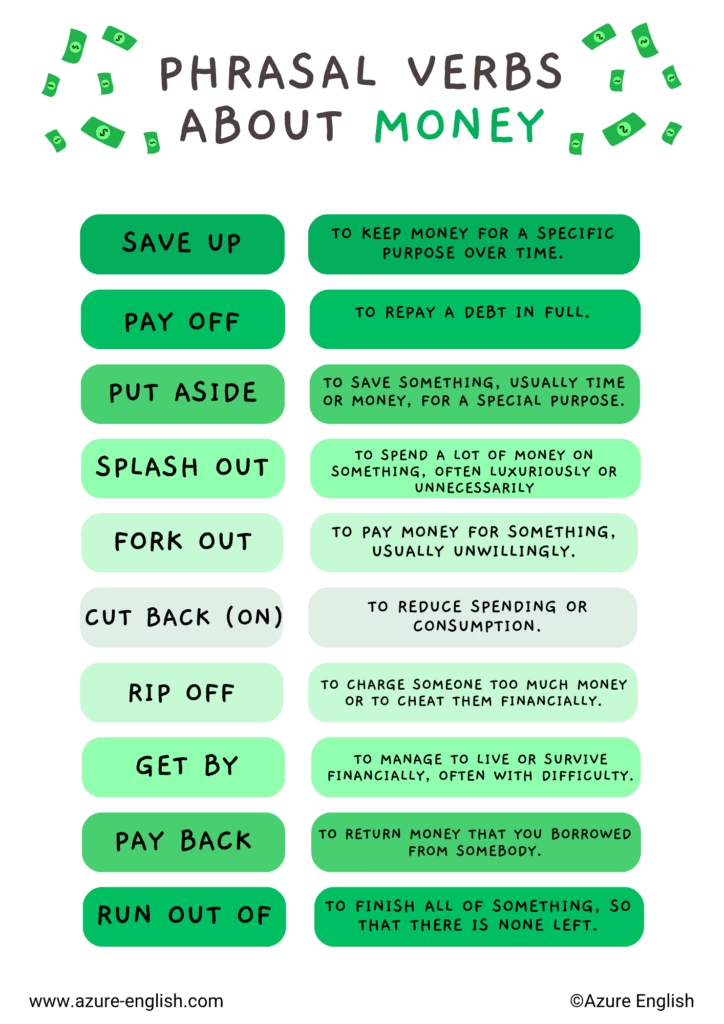Money might not buy happiness, but it certainly fuels a lot of conversations, and the English language is full of phrasal verbs that help us talk about spending, saving, earning, and losing money. Whether you’re discussing personal finance, shopping habits, or budgeting strategies, these everyday expressions will make your English sound more natural and fluent.

Let’s break down 10 useful phrasal verbs related to money, complete with meanings and examples.
1. Shell out (for something)
Meaning: To spend money, usually a lot or unwillingly.
Example: I had to shell out $500 for car repairs last week.
🔹 Often used when the amount is unexpected or feels excessive.
2. Cut back (on something)
Meaning: To reduce spending.
Example: We’re trying to cut back on eating out to save for our vacation.
🔹 Commonly used when budgeting or adjusting expenses.
3. Save up (for something)
Meaning: To gradually collect money for a specific purpose.
Example: She’s saving up for a new laptop.
🔹 Emphasizes long-term planning or goals.
4. Dip into (savings/funds)
Meaning: To use part of money saved for emergencies or future use.
Example: We had to dip into our savings to pay the medical bills.
🔹 Often implies reluctance or necessity.
5. Splash out (on something) (UK English)
Meaning: To spend a lot of money on something nice but not essential.
Example: They splashed out on a luxury honeymoon in Bali.
🔹 A more indulgent or celebratory tone.
6. Pay off
Meaning: To repay all of a debt.
Example: I finally paid off my student loans last year!
🔹 Also used metaphorically: “All that hard work really paid off.”
7. Take out (a loan/mortgage/insurance)
Meaning: To arrange and begin a financial agreement.
Example: We took out a mortgage to buy our first home.
🔹 Often used in financial or legal contexts.
8. Run up (a bill/debt)
Meaning: To accumulate debt or charges.
Example: He ran up a huge credit card bill on holiday.
🔹 Usually negative, implying irresponsibility.
9. Fork out (for something)
Meaning: To pay for something, especially reluctantly.
Example: I forked out $300 for concert tickets; totally worth it, though!
🔹 Similar to “shell out,” but with a more casual tone.
10. Cash in (on something)
Meaning: To make money from a situation, sometimes opportunistically.
Example: She cashed in on the property boom and sold her house at a huge profit.
🔹 Can have a slightly negative or opportunistic connotation.
Final Thoughts
Mastering phrasal verbs like these helps you sound more natural when talking about finances; whether you’re budgeting, spending, or trying to save. They’re commonly used in conversation, business English, and media headlines, so the more familiar you are with them, the more confident you’ll be in real-world situations.
👉 Try using some of these in your own sentences or conversations. Which ones do you use the most? Have you ever had to cut back, dip into savings, or splash out on something special?
Other posts you might be interested in: